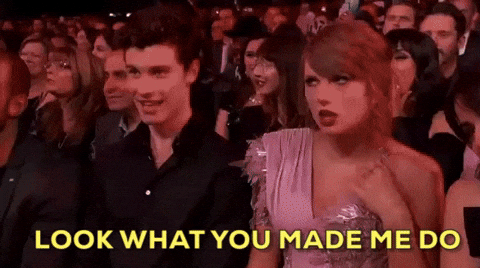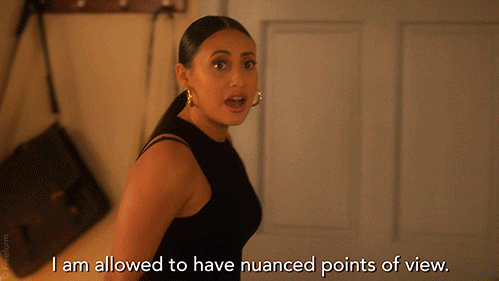We all have moments, somewhere along the way, that shape us. Bend us. Forge us into the people we are now.
Some of those moments feel like they’ve always been there. Some tiptoe in so quietly you don’t even notice them. Others arrive so loudly and publicly that you can’t ignore them.
Moments that are personal, like where you sit in the family system. 🙋🏼♀️Middle child here with the cliches that brings of peacemaker ✅ and diplomat ✅.
And moments that are Political, for example the time and place you were born into.
🙋🏼♀️70s child here, power cuts and the Yorkshire Ripper were part of my childhood!
These moments shape how we see the world. Like a lens. Or a pair of glasses we forget we’re wearing but that tint everything we look at and then everything we do.
Here are some more of the moments that forged my lenses:
Growing up in a small town of fewer than 8,000 people in the North of England in the 80s. With limited job opportunities and where it was the exception, not the norm, to go to university. Where everybody knew your name (can you hear the theme tune?) AND they knew what you did and who with!
Growing up the daughter of an immigrant, in a town with no other immigrants.
And what felt, especially when I was younger, like such big differences between my dad’s culture and my mum’s. Although let’s be honest, the food was definitely better on Dad’s side.Becoming a mother. A seismic shift that changed me forever. From the overwhelming love and fierce protection I felt for my newborn son
to the slow, painful realisation that while my love was endless
the care and protection I felt from society was very much not. Although I did receive a healthy eating voucher from Gordon Brown, so thanks Gordon.Becoming the mother of a daughter. Another quake. And a brand new lens.
From the scratchy ‘pretty’ dresses people gifted her, so different from the soft, cosy clothes my son received. To the gut punch of realising I didn’t want my daughter to have to put up with the things I had as a girl and then a woman.Having lived in London longer than anywhere else now, and feeling the cold every time I go back North. Not metaphorical. Actual cold, like the lips blue and body shaking kind.
All these moments, and so many more, have shaped me. And there will be more moments to come that shape who I become next.
Which brings us to this week’s question:
Why this question?
Because the way we see shapes what we choose. Every decision is filtered through a lens. And that lens isn’t neutral. It’s shaped by our past. Our pain. Our joy. Our actual place in the world.
And often, we’re taught to hide those lenses. To call them biases. To scrub them away in the name of objectivity.
But what if we stopped pretending we could or should scrub away who we are?
This is what feminist thinkers call standpoint theory1, the idea that where we stand shapes what we see. And I don’t think that’s not a flaw. I think it’s a feature.
Thinkers like Sandra Harding and Patricia Hill Collins remind us, there’s no such thing as a view from nowhere. And sometimes, the clearest truths come from the margins.
Closely related to this is positionality, the practice of naming who we are and how our social identity (race, gender, class, education, geography and… and …) shapes our understanding. It’s not just academic. It’s practical. And it impacts what we notice, and prioritise. What we do and what we don’t do.
If you’ve ever found yourself seeing consequences or possible harms that others don’t
you’re not imagining things. You’re just standing somewhere different2.
And I honestly think if we could all learn more about each other’s standpoint and positionality, we’d really understand each other so much better.
It seems so obvious.
So I think it’s time to stop shushing these moments, to stop asking our lenses to whisper and instead invite them to speak up. This week’s question isn’t about guilt or introspection. It’s about context. It’s about reclaiming your standpoint as a strength, not a weakness.
Try this tool this week: Where I stand
Try and name at least five life moments, big or small, that shifted what you notice or care about.
Name what changed the way you see.
Notice what you’re sensitive to now because of what you saw.
Acknowledge what might be invisible to you but visible to others from where they stand.
This isn’t about judgement. It’s about noticing and acknowledging there’s more than than one view.
Till next week,
P.S. You don’t have to share your five moments with anyone but noticing them might just change the way you notice everything else.
Inspiration & Credits:
I hope giving some distance between sources and their links frees you from ending up in an unintended rabbit hole! If you’re interested though - click away!







